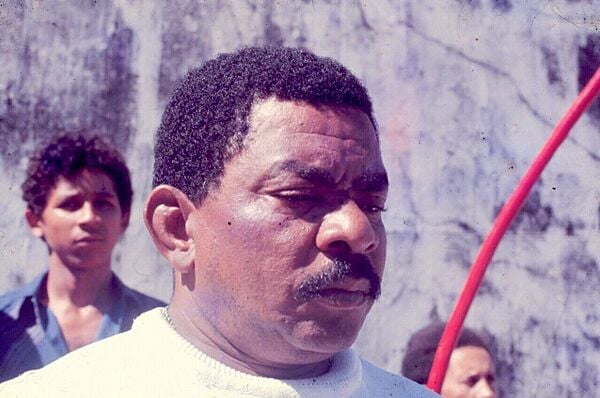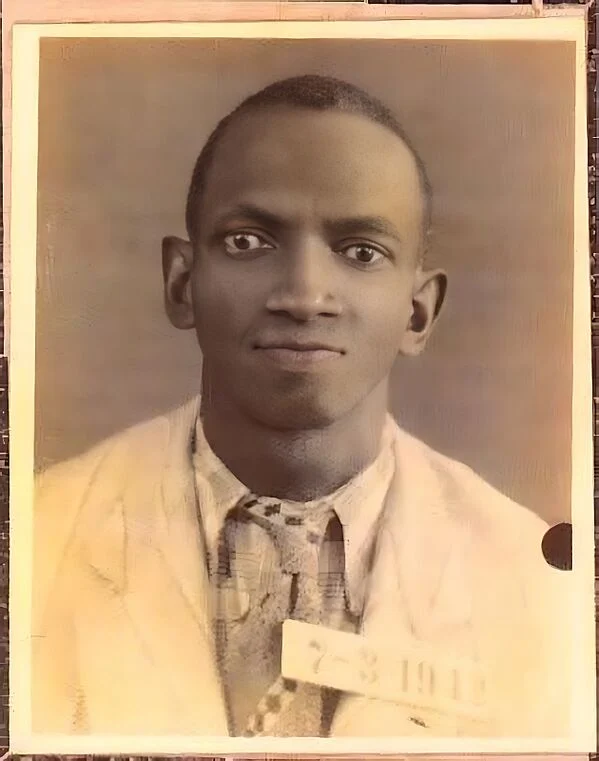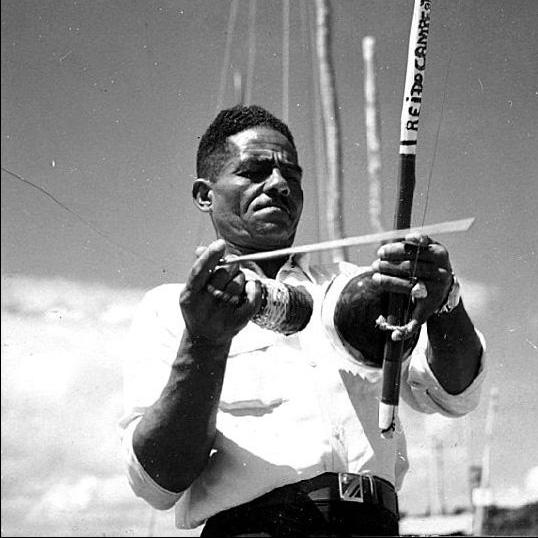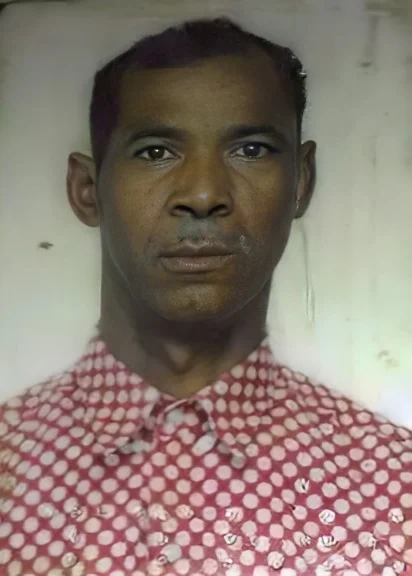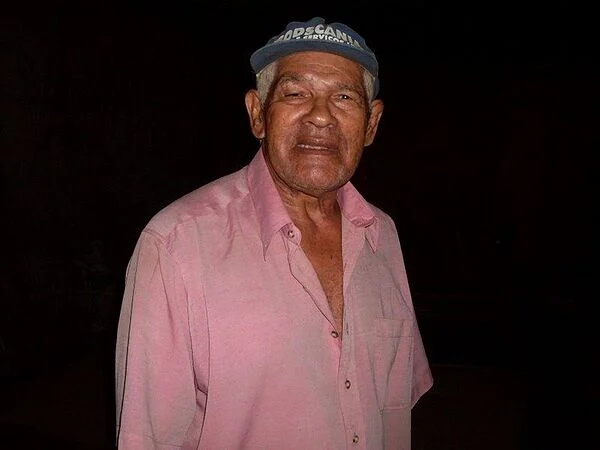Mestre Caiçara (born Antonio Carlos Moraes in 1923) was a renowned Brazilian Capoeira Mestre whose influence extended far beyond the art itself, deeply interwoven with the social and cultural fabric of Pelourinho, a historic neighborhood in Salvador, Bahia. Mestre Caiçara was a unique figure, known for his mastery in Capoeira, but equally recognized for his deep connections with the street politics and criminal elements of the area, which shaped both his personal and professional life.
Early Life and Connection with the Streets
Born in 1923, Mestre Caiçara’s early life was marked by the struggles and hardships of the streets. His profound knowledge of Pelourinho, including its underworld—comprising criminals, gangs, and prostitutes—was reflective of his deep ties to the area’s socio-political realities. He was known for his urban intelligence, navigating the complex relationships between street culture and politics. His interactions with politicians' security teams and various local power structures added another layer to his multifaceted character.
Mestre Caiçara's life story is also intertwined with Brazilian folklore. He **claimed to have been a member of the legendary band of Lampião, the notorious bandit leader from the Northeast of Brazil. While the authenticity of this claim remains debated, it speaks to the larger-than-life nature of his character and the intriguing history that shaped him.
Capoeira and the Streets of Pelourinho
Mestre Caiçara’s contribution to Capoeira was immense. He was known for his formidable and effective style of Capoeira, one that was both practical and highly respected. However, his role in the world of Capoeira extended beyond just technique; he became a symbol of how the martial art could be deeply connected to the streets and the lives of ordinary people. As a figure who bridged the divide between the world of Capoeira Angola and the gritty streets of Salvador, Mestre Caiçara’s legacy represents the very essence of Capoeira as a community-based art form.
His understanding of the historical dynamics of Pelourinho, paired with his personal experiences, allowed him to become a key figure in the preservation and evolution of Capoeira in this urban space. Mestre Caiçara wasn’t just a teacher of physical techniques—he also mentored many young people, guiding them not just in Capoeira but in navigating the complexities of their social realities. His teachings transcended the technical aspects of the art and delved into the philosophies and cultural practices that have long been central to Capoeira’s identity.
A Legacy Beyond Capoeira
Mestre Caiçara’s influence extended beyond Capoeira itself. He was deeply involved in the cultural dynamics of Pelourinho, and his work with the community helped elevate the cultural significance of Capoeira. His presence in the community went beyond his role as a Capoeira teacher; he became an important figure in preserving and sharing the oral histories, dances, and traditions of the area. His efforts ensured that Capoeira remained not just an art form, but also a form of social expression and identity.
Through his workshops, performances, and mentorship, Mestre Caiçara became a symbol of resilience and cultural pride. His commitment to teaching Capoeira to underserved communities ensured that the art form was accessible to those who might otherwise have been excluded from it. His work with the streets of Salvador emphasized the connection between Capoeira and its roots in African-Brazilian culture, making him not just a Capoeira practitioner but a cultural leader and educator.
Passing and Legacy
Mestre Caiçara tragically passed away in 1997, but his legacy continues to inspire and influence the Capoeira community. His contributions to Capoeira were not limited to technique; they extended to his ability to connect the art with the realities of urban life. His teachings and stories are still shared among Capoeira practitioners, especially in Pelourinho, where his influence was deeply felt.
The story of Mestre Caiçara serves as a reminder of the profound impact that Capoeira has had in shaping the cultural landscape of Brazil. Through his life and work, he demonstrated the power of Capoeira as a cultural tool, a means of resilience, and a way of preserving the identity of marginalized communities. His impact continues to live on in the roda, where the spirit of Capoeira Angola endures, and in the hearts of those who were touched by his wisdom, humor, and unparalleled insight into both the art and the community it serves.
Mestre Caiçara’s legend continues to grow, not only as a Capoeira master but also as a key figure in the social history of Pelourinho. His life was an embodiment of the convergence between Capoeira, street culture, and social engagement, leaving behind a legacy that continues to inspire new generations of Capoeira practitioners worldwide.
